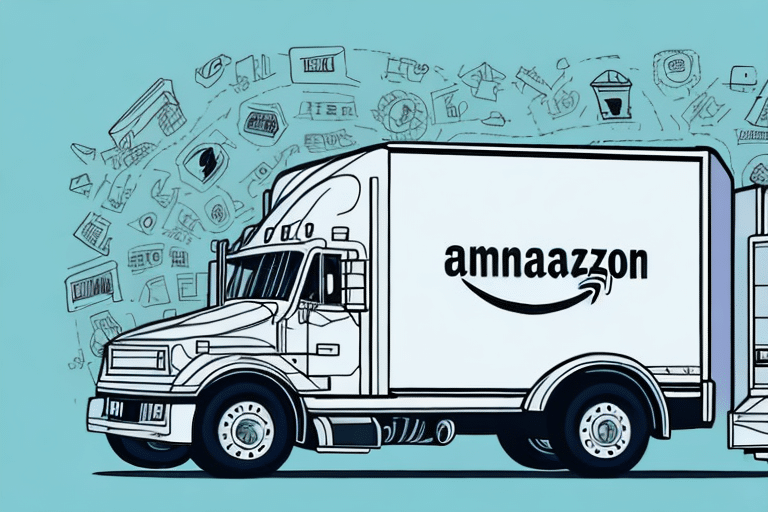Comparing the Top Shipping Carriers for Your Business in 2024
Are you searching for the best shipping carrier for your business? With numerous options available, determining the right fit can be challenging. This comprehensive comparison of the top shipping carriers will help you make an informed decision based on current industry standards and metrics.
Overview of the Current Shipping Carriers in the Market
The shipping landscape has evolved significantly over the past year, with major carriers enhancing their services to meet growing business demands. The most prominent carriers include USPS, UPS, FedEx, DHL, and Amazon Shipping.
These carriers offer a wide range of services, including domestic and international shipping, same-day delivery, priority mail, and more. Additional features such as real-time tracking, insurance, and packaging supplies are also commonly provided to enhance the shipping experience.
USPS remains a government-owned carrier with over two centuries of operation, renowned for its affordable rates and reliable services. Amazon Shipping, launched in 2018, has quickly become a strong contender, especially for Amazon sellers, offering competitive rates and fast delivery times with real-time tracking capabilities.
Key Factors to Consider When Selecting a Shipping Carrier
Choosing the right shipping carrier requires a thorough evaluation of several critical factors:
- Shipping Destination and Distance: Determine whether the carrier covers your target regions effectively.
- Package Weight and Size: Assess if the carrier can handle the dimensions and weight of your products.
- Shipping Speed and Delivery Options: Evaluate the range of delivery speeds offered, from same-day to international shipping.
- Shipping Costs: Analyze pricing structures, including any discounts for volume shipping.
- Customer Service Quality: Consider the availability and responsiveness of customer support.
- Tracking and Reporting Capabilities: Ensure the carrier provides real-time tracking and comprehensive reporting tools.
- eCommerce Platform Integrations: Check compatibility with your existing online platforms like Shopify or Magento.
- Environmental Impact: Look for carriers that offer eco-friendly shipping options to align with sustainability goals.
Additionally, consider the carrier's reliability in delivering packages on time and without damage. Carriers that offer guarantees or insurance options can provide extra security for your shipments.
Environmental sustainability is increasingly important. Selecting a carrier that prioritizes eco-friendly practices, such as carbon-neutral shipping or the use of electric vehicles, can enhance your brand's reputation and appeal to environmentally conscious customers.
Defining a 'Top' Shipping Carrier
A top shipping carrier excels in several areas to meet and exceed customer expectations:
- Diverse Shipping Options: Offering a variety of services to cater to different business needs.
- Reliable and Fast Delivery: Ensuring timely deliveries with minimal delays.
- Competitive Pricing: Providing cost-effective solutions without compromising on service quality.
- Excellent Customer Service: Offering accessible and helpful support to resolve any issues promptly.
- Advanced Tracking and Reporting: Providing comprehensive tools for monitoring shipments in real-time.
- Value-Added Features: Including packaging supplies, insurance, and customs clearance for international shipments.
- Environmental Sustainability: Implementing eco-friendly practices to reduce the environmental footprint.
- Strong Industry Reputation: Maintaining a proven track record of reliability and customer satisfaction.
Additionally, leading carriers invest in innovative technologies and sustainable practices, further distinguishing themselves in the competitive shipping industry.
Detailed Analysis of Top Shipping Carriers
Let's delve deeper into what each leading shipping carrier offers:
USPS
The United States Postal Service (USPS) is a staple for small businesses and individuals, known for its affordable rates and reliable delivery options like Priority Mail and First-Class Mail. USPS offers free packaging supplies for these services, making it a cost-effective choice. However, its international shipping services are somewhat limited compared to global carriers.
UPS
United Parcel Service (UPS) is a global powerhouse offering a comprehensive range of services, including international shipping, same-day delivery, and time-definite delivery options. UPS provides advanced tracking and robust reporting capabilities, alongside excellent customer service. The downside is that UPS can be more expensive, which might be a barrier for smaller businesses.
FedEx
FedEx is renowned for its reliable delivery and extensive tracking systems. It offers a variety of domestic and international shipping options, including specialized services like custom packaging and printing. While FedEx delivers exceptional value, its costs are higher compared to some competitors, and its international reach may vary by region.
DHL
DHL excels in international shipping, providing express delivery services to over 220 countries and territories. It's known for fast and reliable global deliveries, including customs clearance and insurance. However, DHL's domestic services in certain regions may not be as expansive, and costs can be higher.
Amazon Shipping
Amazon Shipping is tailored primarily for Amazon sellers, offering competitive rates and fast delivery options like same-day, next-day, and two-day shipping. It integrates seamlessly with the Amazon platform, providing advanced tracking and package protection. However, its services are limited to Amazon ecosystem users, making it less suitable for businesses operating outside of Amazon.
USPS vs. UPS: A Comparative Overview
Choosing between USPS and UPS often comes down to specific business needs:
- Cost: USPS generally offers more affordable rates, especially for smaller packages and lower shipping volumes.
- Service Range: UPS provides more advanced features and expansive international shipping services, suitable for larger businesses with higher shipping volumes.
- Reliability: Both carriers are reliable, but UPS often provides more comprehensive tracking and faster delivery options.
For businesses with frequent large shipments and a need for detailed tracking, UPS may be the better choice. Conversely, USPS is ideal for smaller businesses or those prioritizing cost-effectiveness.
Pricing Structures of Top Shipping Carriers
Understanding the pricing models of different carriers is crucial for managing your business's shipping costs:
- Package Weight and Dimensions: Heavier and larger packages typically incur higher shipping costs.
- Shipping Destination: International shipping usually costs more than domestic.
- Shipping Speed: Expedited shipping options, such as next-day delivery, come at a premium.
- Volume Discounts: Many carriers offer discounts for businesses that ship in large volumes.
- Flat-Rate Pricing: Some services, like USPS's Flat Rate boxes, provide a fixed price regardless of package weight.
Additionally, carriers may charge extra fees for value-added services like insurance, customs clearance, or specialized packaging. It's essential to compare these costs against your business's shipping needs to determine the most cost-effective carrier.
Shipping Speed and Delivery Options Among Top Carriers
The speed and flexibility of shipping options can greatly affect customer satisfaction and business operations. Here's how the top carriers compare:
- USPS: Offers Priority Mail, First-Class Mail, and Express Mail, catering to various delivery speed needs.
- UPS: Provides Ground, 3-Day Select, 2nd-Day Air, and Next-Day Air services.
- FedEx: Features Ground, Express Saver, 2Day, and Overnight shipping options.
- DHL: Delivers Express, Express 12, Express 9, and Express Worldwide services.
- Amazon Shipping: Offers Same-Day Delivery, Next-Day Delivery, and Two-Day Delivery.
Selecting a carrier that aligns with your delivery speed requirements is essential for maintaining customer satisfaction and operational efficiency.
Customer Service Comparison: Which Carrier Offers the Best Support?
Reliable customer support can make a significant difference when issues arise. Here's a comparison of customer service offerings among top carriers:
- USPS: Provides phone support, online chat, email support, and in-person support centers.
- UPS: Offers phone support, email support, social media assistance, and comprehensive support centers.
- FedEx: Features phone support, email support, live chat, and support centers.
- DHL: Includes phone support, email support, and dedicated support centers.
- Amazon Shipping: Provides phone support, email support, social media assistance, and support centers.
Carriers with diverse and accessible support channels can help resolve issues more efficiently, minimizing disruptions to your business operations.
Tracking and Reporting Capabilities: Ensuring Real-Time Visibility
Real-time tracking is vital for both businesses and customers to monitor shipments. Here's how the top carriers handle tracking and reporting:
- USPS: Offers package tracking, delivery confirmation, and email alerts.
- UPS: Provides detailed package tracking, delivery confirmation, and both email and SMS alerts.
- FedEx: Features comprehensive package tracking, delivery confirmation, and email/SMS notifications.
- DHL: Delivers detailed tracking information, delivery confirmation, and both email and SMS alerts.
- Amazon Shipping: Offers real-time package tracking, delivery confirmation, and email/SMS notifications.
Advanced tracking capabilities enhance transparency and allow for proactive management of shipments, leading to improved customer trust and satisfaction.
Integrations with eCommerce Platforms: Streamlining Your Operations
Seamless integration with your eCommerce platform can streamline shipping processes and improve efficiency. Here's a breakdown of integrations offered by leading carriers:
- USPS: Integrates with popular platforms like Shopify and WooCommerce.
- UPS: Compatible with platforms such as Magento and Shopify.
- FedEx: Offers integrations with Shopify and WooCommerce.
- DHL: Integrates with Magento and WooCommerce.
- Amazon Shipping: Limited integration options outside the Amazon ecosystem.
Choosing a carrier that seamlessly integrates with your eCommerce platform can save time and reduce errors in order fulfillment.
International Shipping Services: Expanding Your Global Reach
For businesses engaged in international trade, selecting a carrier with robust global shipping capabilities is essential. Here's how top carriers compare in international shipping:
- USPS: Ships to over 190 countries with services like Priority Mail Express International and First-Class Mail International.
- UPS: Covers over 220 countries and territories with options ranging from express to standard shipping.
- FedEx: Provides international shipping to over 220 countries and territories with both express and economy services.
- DHL: Offers express shipping to over 220 countries and territories, including customs clearance and insurance services.
- Amazon Shipping: Currently does not offer international shipping outside the Amazon platform.
Reliable international shipping services can help your business tap into new markets and meet global customer demands effectively.
Special Features and Add-Ons: Enhancing Value and Service
Value-added features can significantly enhance your shipping experience. Here's a comparison of special features and add-ons offered by top carriers:
- USPS: Provides free shipping supplies for Priority Mail services, insurance up to $5,000, and custom stamps and envelopes.
- UPS: Offers custom packaging, printing services, and various shipping protections and insurance options.
- FedEx: Features custom packaging, printing services, and specialized services for healthcare, hazardous materials, and temperature-controlled shipping.
- DHL: Includes customs clearance, insurance, and temperature-controlled shipping options.
- Amazon Shipping: Provides package protection, insurance, and advanced tracking capabilities.
These features can add significant value, offering additional security, customization, and convenience tailored to your business needs.
Case Studies: Success Stories with Different Shipping Carriers
Real-world examples illustrate how businesses benefit from various shipping carriers:
- Small eCommerce Business: Utilizes USPS to minimize shipping costs and offer free shipping to customers, enhancing competitiveness.
- Large eCommerce Enterprise: Chooses UPS for its reliable and fast delivery options, alongside comprehensive tracking and reporting.
- International Retailer: Uses FedEx for its extensive global reach and advanced customs clearance services, facilitating smooth international transactions.
- Healthcare Provider: Partners with DHL for its specialized temperature-controlled shipping options, ensuring the safe transport of sensitive medical supplies.
- Amazon Seller: Relies on Amazon Shipping for its seamless integration with the Amazon platform and rapid delivery services, improving customer satisfaction.
Making the Right Choice: Selecting the Best Shipping Carrier for Your Business
With numerous factors to consider, selecting the optimal shipping carrier requires a strategic approach. Evaluate your business's specific needs, such as shipping volume, destinations, budget, and desired service levels. Compare the offerings of top carriers based on pricing, delivery speed, customer service, and additional features. By aligning your business objectives with the strengths of a shipping carrier, you can enhance operational efficiency, reduce costs, and improve customer satisfaction, ultimately driving business growth.




















